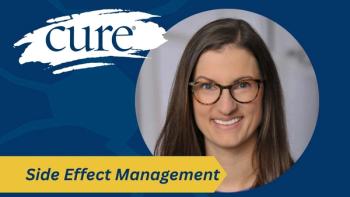
- November 2014
What are ways to ease long-term and late effects?
The SCP discussion also allows time to determine if the survivor needs rehabilitation to regain strength and conditioning.
> Rehabilitation: The SCP discussion also allows time to determine if the survivor needs rehabilitation to regain strength and conditioning. Rehabilitation may offer an opportunity for another healthcare professional to interact with the survivor concerning unresolved physical issues that may not be apparent in a single discussion.
For example, women may be reluctant to use the arm on the side of their mastectomy because of nerve pain they have not mentioned. Men may be reluctant to walk very far after having undergone prostate surgery for reasons that range from fear of lingering pain to depression. These issues may be addressed by a physiatrist (a physical medicine and rehabilitation specialist), a physical therapist or an occupational therapist.
A few visits to one of these specialists may also help a survivor resume his or her exercise regimen, receive an assessment related to cancer recurrence and monitor for signs of late effects. Exercise is highly recommended to minimize fatigue, depression and anxiety; decrease constipation; and improve appetite as well as strength, balance and other normal bodily functions.
Research shows that 14 to 96 percent of patients in treatment experience fatigue as do 19 to 82 percent of patients posttreatment. To their own detriment, survivors often do not mention fatigue to their healthcare provider, assuming it is a normal side effect of their treatment. When fatigue is discussed as part of the SCP, survivors have an opportunity to learn that there are ways to resolve this long-term side effect.
One model of survivorship care places rehabilitation at its core: rehabilitation specialists evaluate survivors for both long-term and late effects and then refer them to the appropriate clinician for followup. The importance of rehabilitation for cancer survivors is reflected in the CoC’s accreditation standards, which require that rehabilitation services be made available to cancer patients and survivors.
> Distress assessment: The CoC has also included distress screening as an accreditation criterion to be phased in by 2015. Distress management is also recommended by the National Comprehensive Cancer Network.
Studies show that up to one-quarter of people with cancer have clinical depression, the symptoms of which include anger, irritability, difficulty concentrating, feelings of helplessness or despair, an inability to experience joy, loss of interest in usual activities, restlessness, difficulty sleeping and even suicidal thoughts. Research has also identified fear of recurrence as one of the most common emotional issues survivors experience as treatment ends. In addition to depression and anxiety, survivors may face a host of other issues related to the cancer experience: financial and employment concerns, changes in family relationships, emotional isolation or sexual dysfunction.
Unfortunately, studies indicate distress assessment is rarely a part of routine care by oncologists, and survivors, in turn, rarely volunteer information about their emotional condition.
Articles in this issue
over 11 years ago
What are examples of effects caused by treatment?over 11 years ago
How prevalent are long-term and late effects in survivors?over 11 years ago
What are long-term and late effects?


